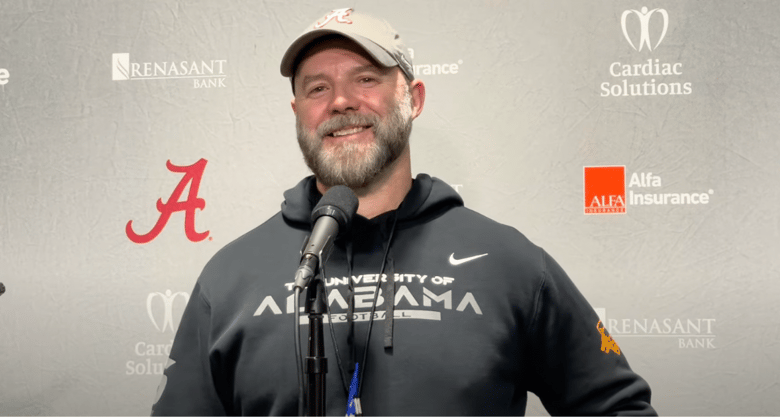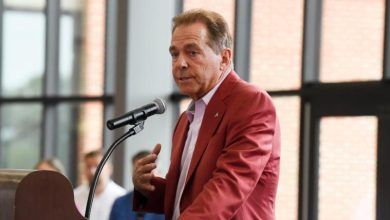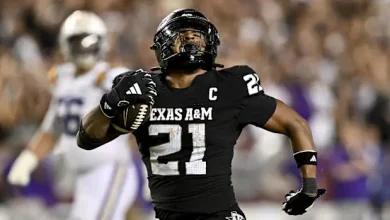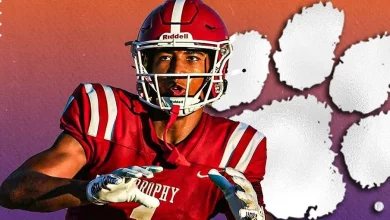How Ryan Grubb’s Alabama football pay compares to that of other offensive coordinators in the SEC

In the high-stakes world of college football, where championships are often won or lost based on the strength of a team’s offense, the role of the offensive coordinator is more critical than ever. As a result, salaries for these coaches have become a key talking point in discussions surrounding college football programs. Coaches in the Southeastern Conference (SEC), home to some of the most successful and competitive football programs in the country, are compensated generously for their efforts to build explosive and efficient offenses. In particular, Ryan Grubb, the newly appointed offensive coordinator for the Alabama Crimson Tide, is earning a significant salary, but how does it compare to his peers within the SEC?
Ryan Grubb’s Role at Alabama
Ryan Grubb’s hiring as Alabama’s offensive coordinator was a move that many saw as critical for the program’s long-term success. Known for his exceptional work with the Washington Huskies’ offense, Grubb helped elevate Washington’s offense into one of the best in the country during his tenure as offensive coordinator. Under his guidance, quarterback Michael Penix Jr. became a Heisman Trophy candidate, and the Huskies boasted a top-five offense in terms of passing yards and scoring efficiency.
Alabama, traditionally known for its dominance on the defensive side of the ball, has been in the midst of a transition in recent years. The Crimson Tide offense, though still potent, has sometimes been overshadowed by the program’s defense. With the hiring of Grubb, Alabama is looking to modernize its offense, ensuring it remains competitive in an increasingly offensive-minded college football landscape.
Ryan Grubb’s Pay at Alabama
When Grubb made the transition to Alabama in the 2025 season, he was expected to bring a fresh perspective to the offensive playbook and take the reins of an offense that had become slightly predictable under previous coordinators. While exact salary details are often closely guarded by schools, public reports and discussions about Alabama’s coaching salaries suggest that Grubb’s compensation falls in line with the top-tier offensive coordinators in the nation.
Though Ryan Grubb’s contract details at Alabama have not been fully disclosed, it’s reported that he is earning a salary in the range of $2.5 million to $3 million per year. This range is significant, considering the prestige of Alabama’s program and the competitive nature of the SEC. The salary reflects the high demand for Grubb’s expertise and the importance of his role in revitalizing Alabama’s offensive attack.
Comparing Grubb’s Pay to Other SEC Offensive Coordinators
In the SEC, the salaries of offensive coordinators can vary significantly depending on the success of the team, the prestige of the program, and the experience of the coordinator. Alabama, consistently ranked among the top college football programs in the country, tends to offer competitive salaries to their coaching staff, and Grubb’s compensation is reflective of that. However, it’s worth examining how his pay compares to that of other prominent offensive coordinators within the SEC.
1. Lane Kiffin (Ole Miss) – $1.9 million
Lane Kiffin, the head coach at Ole Miss, is well-known for his offensive ingenuity. His offense has been one of the most explosive in the SEC, and his coaching acumen has drawn considerable attention from other top programs. Kiffin’s salary is reported to be around $1.9 million as the offensive mastermind behind the Rebels’ offensive success. While Kiffin is an offensive-minded head coach and not just an offensive coordinator, his salary is important to consider when comparing it to the pay of other coordinators. Given the success of his offense, it is expected that he could command a higher salary, but it’s notable that Alabama is willing to pay more for a top-tier offensive coordinator like Grubb.
2. Robbie Caldwell (Vanderbilt) – $1.3 million
At Vanderbilt, Robbie Caldwell serves as the offensive line coach and run-game coordinator, with his primary focus on the offensive line and the team’s rushing attack. While Vanderbilt is not as traditionally competitive as some of the other SEC programs, Caldwell’s role in shaping their offensive line is vital. His salary is reported to be around $1.3 million, which is significantly lower than Grubb’s compensation at Alabama. While Caldwell’s salary is lower due to Vanderbilt’s standing in the SEC, it highlights the financial disparity between coordinators at programs like Alabama versus those at schools with fewer resources or less football success.
3. Steve Sarkisian (Texas) – $2.8 million
Steve Sarkisian, now the head coach at Texas, previously served as Alabama’s offensive coordinator under Nick Saban. Sarkisian’s offense at Alabama helped lead to several championship appearances, and his success with the program earned him a lucrative deal at Texas. Sarkisian was paid $2.8 million as Alabama’s offensive coordinator, a salary that placed him among the top coordinators in the nation. When comparing Grubb’s reported salary at Alabama to Sarkisian’s, it’s clear that Alabama continues to invest heavily in its offensive staff, reflecting the importance of having a dynamic offense in today’s college football landscape.
4. Mike Bobo (Auburn) – $1.5 million
Mike Bobo, the offensive coordinator at Auburn, is another well-respected figure in the SEC. Bobo has a long history of success as a coordinator, most notably at Georgia, where his offenses were consistently among the best in the conference. His reported salary as Auburn’s offensive coordinator is around $1.5 million. While his compensation is somewhat lower than that of Grubb, it reflects Auburn’s current position in the SEC, where they have been striving to rebuild their program under new head coach Hugh Freeze. In comparison to Grubb’s pay, Bobo’s salary is lower, signaling that Alabama is willing to invest more heavily in its offensive coordinator to ensure a return to championship-level offense.
5. Kendall Briles (Arkansas) – $1.5 million
Kendall Briles, the offensive coordinator at Arkansas, is another top offensive mind in the SEC. Known for his high-octane offenses, Briles has helped lead Arkansas to become one of the most dynamic offensive teams in the conference. His reported salary of around $1.5 million is in line with that of Bobo at Auburn. While Briles’ offenses have garnered significant praise, his pay is still lower than Grubb’s. This salary disparity highlights the financial power and football tradition of programs like Alabama, which is consistently willing to pay a premium for the best available talent.
6. David Cutcliffe (Mississippi State) – $1.1 million
David Cutcliffe, the offensive coordinator at Mississippi State, has seen his salary increase in recent years as he’s helped build a strong offensive program in Starkville. With a reported salary of $1.1 million, Cutcliffe earns less than his counterparts at other SEC schools. The lower salary reflects Mississippi State’s status within the SEC, as the program is not typically competing at the same level as Alabama, Georgia, or LSU. Still, Cutcliffe’s work with Mississippi State’s offense has been notable, and his compensation reflects the typical pay scale for coordinators at programs with less financial backing and fewer national championships.
Factors Influencing Pay Discrepancies
The salary discrepancies between Ryan Grubb and other SEC offensive coordinators can be attributed to several factors, including:
1. Program Prestige and History
Alabama is one of the most storied programs in college football history. With multiple national championships, SEC titles, and a rich history of producing NFL talent, Alabama’s financial resources allow the school to pay top dollar for elite coaching talent. In contrast, schools like Mississippi State and Vanderbilt simply do not have the same level of financial backing or football tradition to justify paying their offensive coordinators as much as Alabama.
2. Recruiting Success
Ryan Grubb’s ability to attract top recruits to Alabama has also played a role in his salary. In the SEC, recruiting is often seen as the biggest driver of long-term success. By landing high-profile recruits and building one of the most explosive offenses in the nation, Grubb’s ability to attract talent only increases his value to Alabama. Conversely, coaches at programs that are rebuilding or struggling to recruit top-tier talent typically earn lower salaries.
3. Head Coach Influence
Nick Saban’s influence as Alabama’s head coach also plays a role in the salaries of his coordinators. Saban’s proven track record of championships, recruiting, and player development allows him to secure significant financial resources for his coaching staff. Coordinators like Grubb, under Saban’s direction, are expected to produce immediate results, and their salaries reflect the immense pressure and expectation that come with working for such a high-profile program.









